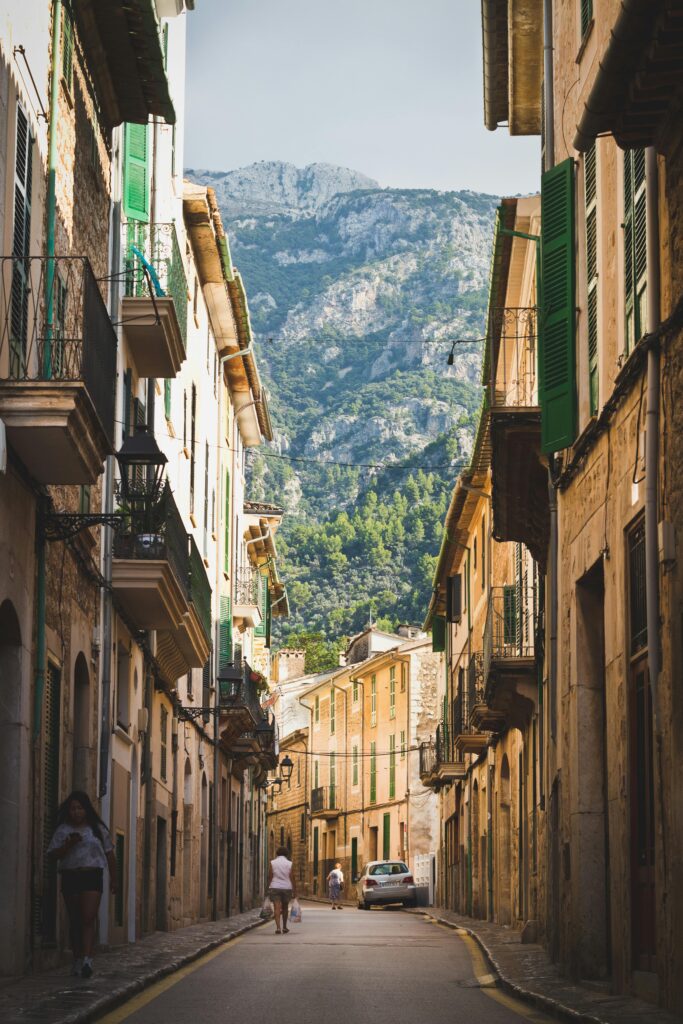Mallorca, celebrated for its sun-drenched beaches and vibrant culture, has long attracted travelers and property investors alike. In recent years, however, a growing undercurrent of controversy has emerged: the illegal marketing of second homes as tourist accommodations. This practice not only skews the local housing market but also challenges regulatory frameworks designed to balance tourism with community well-being. In this article, we delve deeper into the issue, exploring its economic, social, and regulatory implications, while addressing some of the most common questions surrounding the phenomenon.

Overview of the Issue
The booming tourism industry in Mallorca has spurred property investments that extend far beyond traditional accommodations. Many property owners, particularly those holding second homes, have turned to short-term rental platforms and social media to market their properties as vacation rentals—often bypassing official channels and legal requirements. These practices, while profitable, contribute to a gray market where properties are advertised without the proper permits or adherence to zoning and tax regulations.
Key Points:
- Circumventing Regulations: By disguising second homes as tourist accommodations, many property owners sidestep local zoning laws and permit requirements.
- Online Platforms: Digital marketplaces and social media have become breeding grounds for these illegal listings, making enforcement challenging for local authorities.
- Economic Incentives: The allure of quick returns from short-term rentals encourages this illegal marketing, despite the potential long-term consequences for the local housing market.
Economic and Social Impacts
Housing Market Disruption:
The illegal conversion of second homes into tourist accommodations directly impacts the local housing market. With a significant number of properties taken off the long-term rental market, residents face increased competition for housing, driving up rental prices and exacerbating shortages.
Local Community Strain:
Beyond housing, the influx of transient tourists alters community dynamics. Traditional neighborhoods are transformed into seasonal enclaves, which can diminish the sense of community and reduce investment in long-term local infrastructure.
Tax and Revenue Concerns:
Illegal marketing also often involves tax evasion. When property owners fail to register their rentals or report income appropriately, the local government loses vital revenue that could otherwise fund community services and infrastructure projects.

Regulatory Challenges and Enforcement Measures
Evolving Regulatory Frameworks:
Local authorities are grappling with the rapid expansion of the short-term rental market. While regulations exist to control tourist accommodations, enforcement is complicated by the digital nature of the listings. Authorities are now adapting by introducing stricter licensing protocols and employing digital monitoring techniques to identify and target illegal operations.
Innovative Enforcement Tactics:
- Digital Surveillance: Using data analytics to track online listings and cross-reference with property registries.
- Collaboration with Platforms: Authorities are increasingly working with major online rental platforms to flag properties that are not in compliance with local laws.
- Fines and Penalties: A series of heavy fines and even legal action have been implemented as deterrents for those who continue to market illegally.
Community Involvement:
Local residents and community groups have also become key players in reporting suspected illegal activity. Their input has proven invaluable for enforcement agencies aiming to protect community interests and ensure fair market practices.
New Trends and Future Prospects
Rising Scrutiny and Public Debate:
The illegal marketing of second homes is sparking a broader debate about sustainable tourism and responsible property investment in Mallorca. Public discourse now includes calls for more transparent operations and stronger consumer protections, both for tourists and local residents.
Long-Term Industry Implications:
Experts predict that unless significant measures are taken, the continued practice of illegal marketing could lead to a restructuring of the tourism industry. A balance must be struck between leveraging tourism for economic growth and preserving the social fabric of local communities. This may involve:
- Stricter Zoning Laws: Revisiting local zoning laws to better differentiate between long-term residential use and tourist accommodations.
- Enhanced Registration Systems: Implementing more robust registration systems to track short-term rental activities.
- Community-Based Tourism Models: Encouraging tourism models that integrate local residents into the process, ensuring that tourism benefits are more evenly distributed.

Frequently Asked Questions
Q1: What exactly is illegal marketing in this context?
A1: Illegal marketing refers to the practice of advertising second homes as tourist accommodations without the proper permits or registration. This allows property owners to bypass local zoning laws, tax obligations, and safety regulations.
Q2: How does this practice affect local residents?
A2: It leads to a reduction in available long-term housing, drives up rental prices, and disrupts community cohesion. Additionally, the loss of tax revenue can hinder public service improvements.
Q3: What measures are local authorities taking to combat illegal marketing?
A3: Authorities are enhancing digital surveillance of online rental platforms, collaborating with these platforms for compliance, and imposing fines and penalties on those who violate the regulations. They are also considering stricter zoning and registration policies.
Q4: How can tourists ensure they are booking a legal and safe accommodation?
A4: Tourists should book through reputable platforms that verify property listings, check for proper licensing or registration numbers, and read reviews from previous guests. It is also advisable to confirm with local tourism offices if in doubt.
Q5: What are the long-term implications for Mallorca’s tourism industry?
A5: While illegal marketing may boost short-term profits, it risks undermining local housing markets and community well-being. Sustainable tourism practices and robust regulation are needed to ensure that the economic benefits of tourism are balanced with the needs of local residents.
Q6: Will stricter regulations affect the overall tourism experience in Mallorca?
A6: In the short term, tighter regulations might reduce the number of available accommodations. However, in the long run, they could lead to a more sustainable tourism model that benefits both visitors and locals, ensuring a higher quality of life and a more authentic travel experience.
Conclusion
Mallorca’s struggle with the illegal marketing of second homes as tourist accommodations is a multifaceted issue that intertwines economic gains with social and regulatory challenges. As local authorities and communities work together to enforce existing laws and develop new solutions, the future of tourism in Mallorca hinges on finding a delicate balance between fostering growth and preserving the integrity of local life. By addressing these challenges head-on, Mallorca can aim for a tourism model that not only captivates travelers but also supports sustainable development for its residents.
Sources Majorca Daily Bulletin


